Today is International Day Of Women and Girls in Science! To celebrate, we have created a series of profiles highlighting 30 ExeterMarine women leading the way in health, science, engineering and technology.
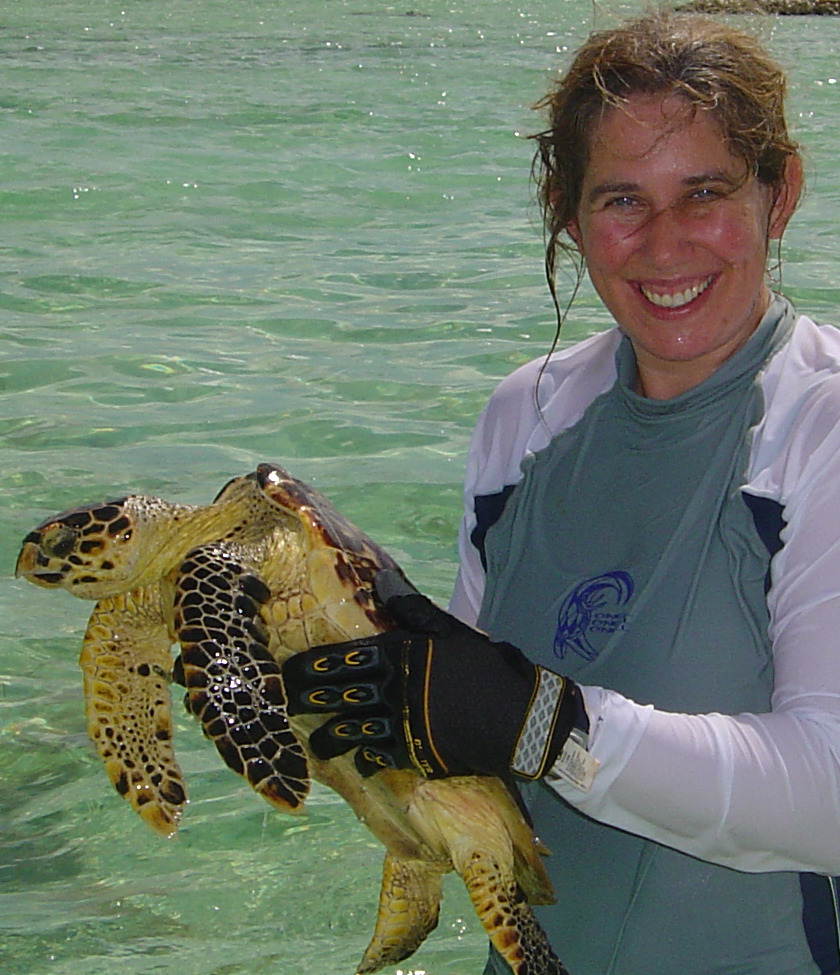 Professor Annette Broderick
Professor Annette Broderick
Annette’s research focuses on the exploitation and status of marine vertebrate populations, in particular marine turtles, utilising satellite tracking and mark and recapture to understand the thermal ecology, sex ratios, habitat use, navigational abilities, growth rates and fecundity of individuals. Annette also runs a long-term field study of the marine turtle populations in Cyprus, on which many of our undergraduate students volunteer.
“Annette was the best PhD supervisor I could have wished for. She inspired me, pushed me, supported me, and made me laugh throughout. Alongside running research and projects around the the world, Annette supports a huge range of students, staff and volunteers, not only in science but with care and support. She will forever be my science matriarch.”
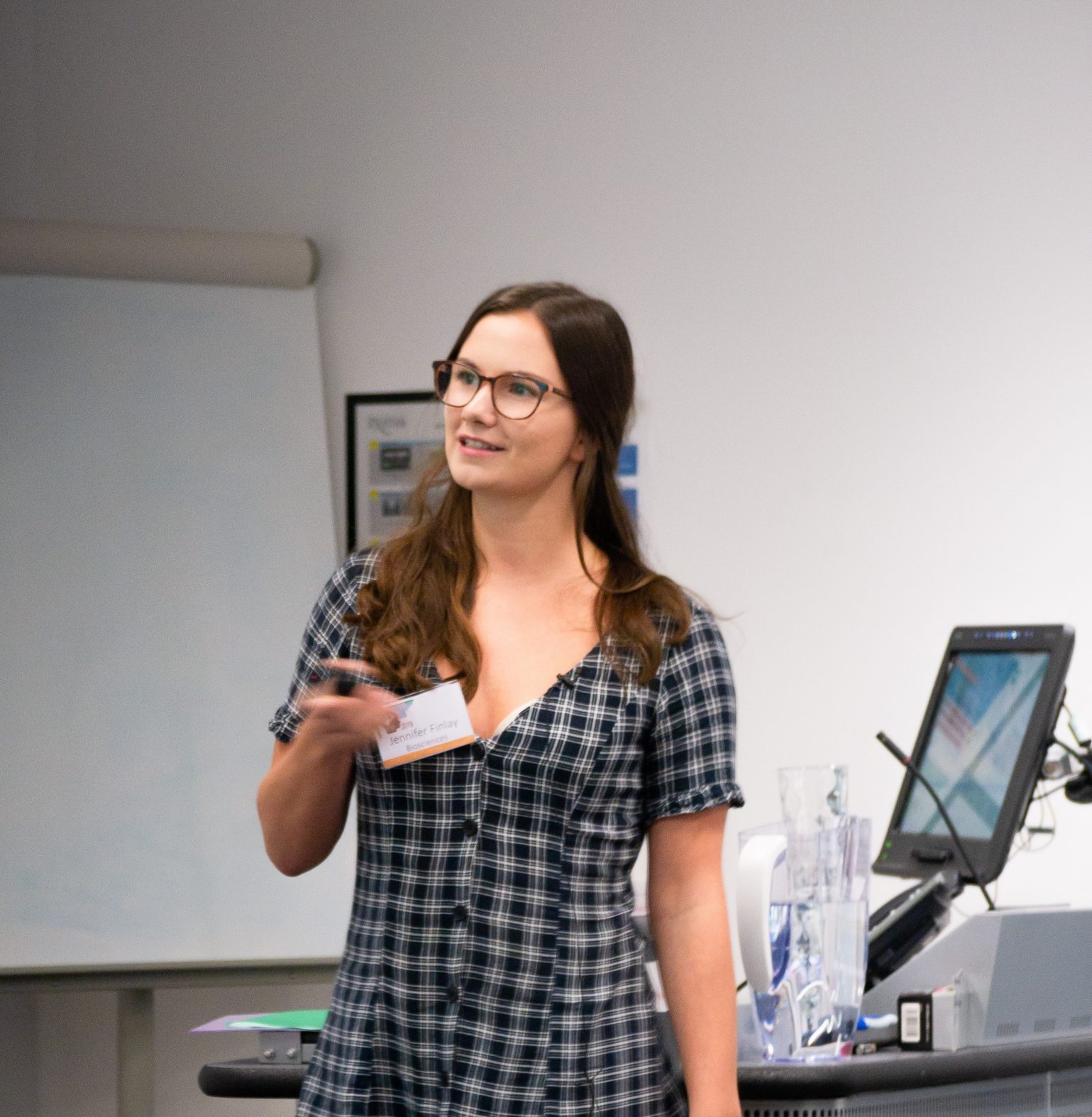 Jennifer Finlay
Jennifer Finlay
Jennifer is on a 4 year BBSRC SWBio DTP studentship in partnership with Ocean Matters Ltd., looking to optimize the production of lumpfish (Cyclopterus lumpus), a cleaner fish used to reduce sea lice prevalence in salmon farms. She is looking at how the water chemistry in which lumpfish are raised affects their physiology and behaviour, and how farmers could manipulate water chemistry to improve growth and welfare, and their effectiveness as a solution to the sea lice problem in salmon farms.
“Jennifer is the Biosciences PGR rep, a great source of energy and positivity in our community at Exeter, and a great friend – which in the past 12 months has been especially appreciated and valued. While also completing a PhD relating to aquaculture of lumpfish, she has been at the forefront of helping to foster a healthier community in Biosciences, which is just as significant a contribution to the productivity of our group!”
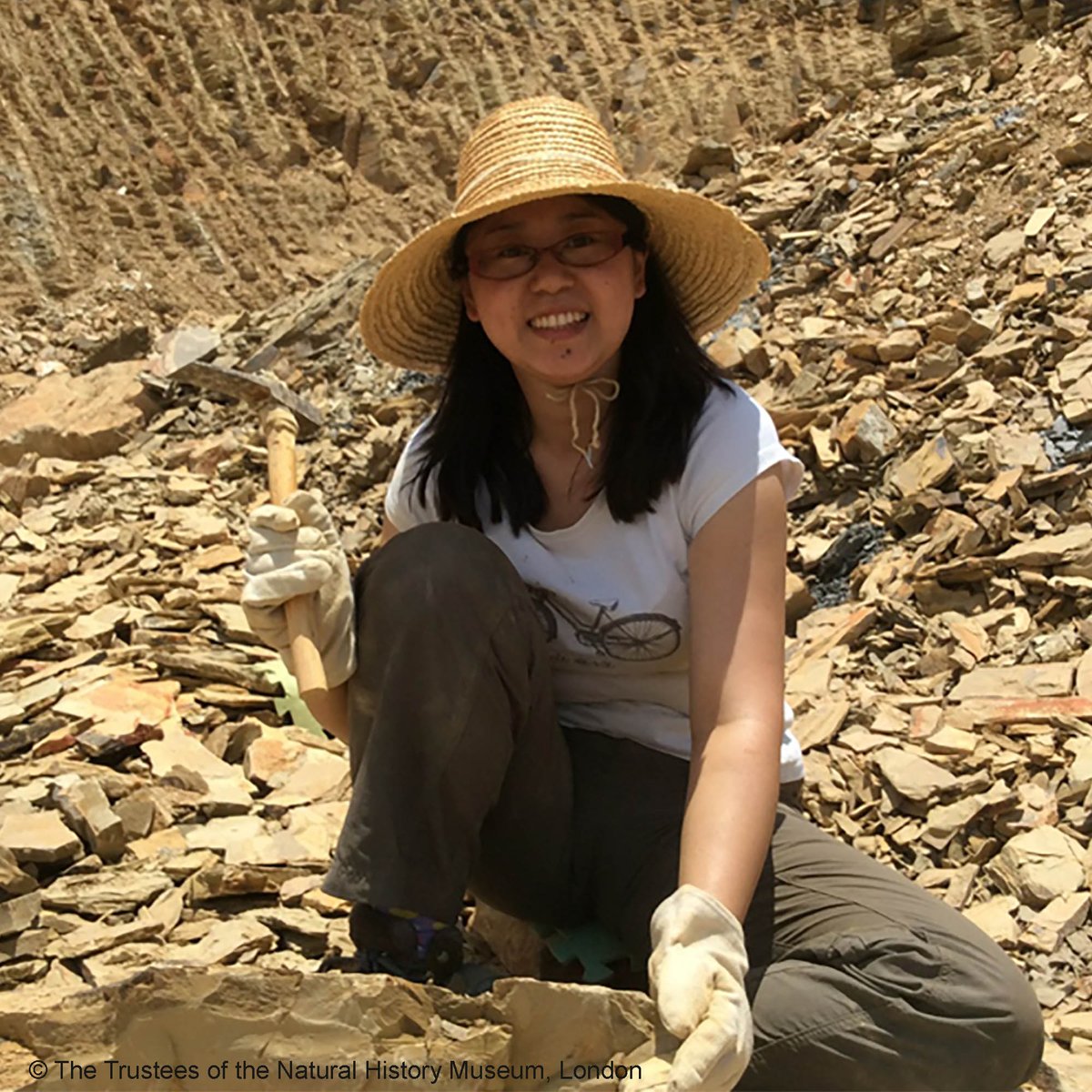 Dr Xiaoya Ma
Dr Xiaoya Ma
Dr Xiaoya Ma is a Chinese Palaeontologist working on exceptionally preserved Cambrian fossils. A Senior Research Fellow, her primary research interest is to understand the origin and early evolution of animal life.
“Xiaoya is amazing. Despite the challenges of balancing the pandemic, family life, online educating, and researching in both the UK and China, she continues to astound all with the amazing insights into ancient marine life forms from the fossil record. This she does with an infectiously, positive verve, second to none.”
Jiaxin Chen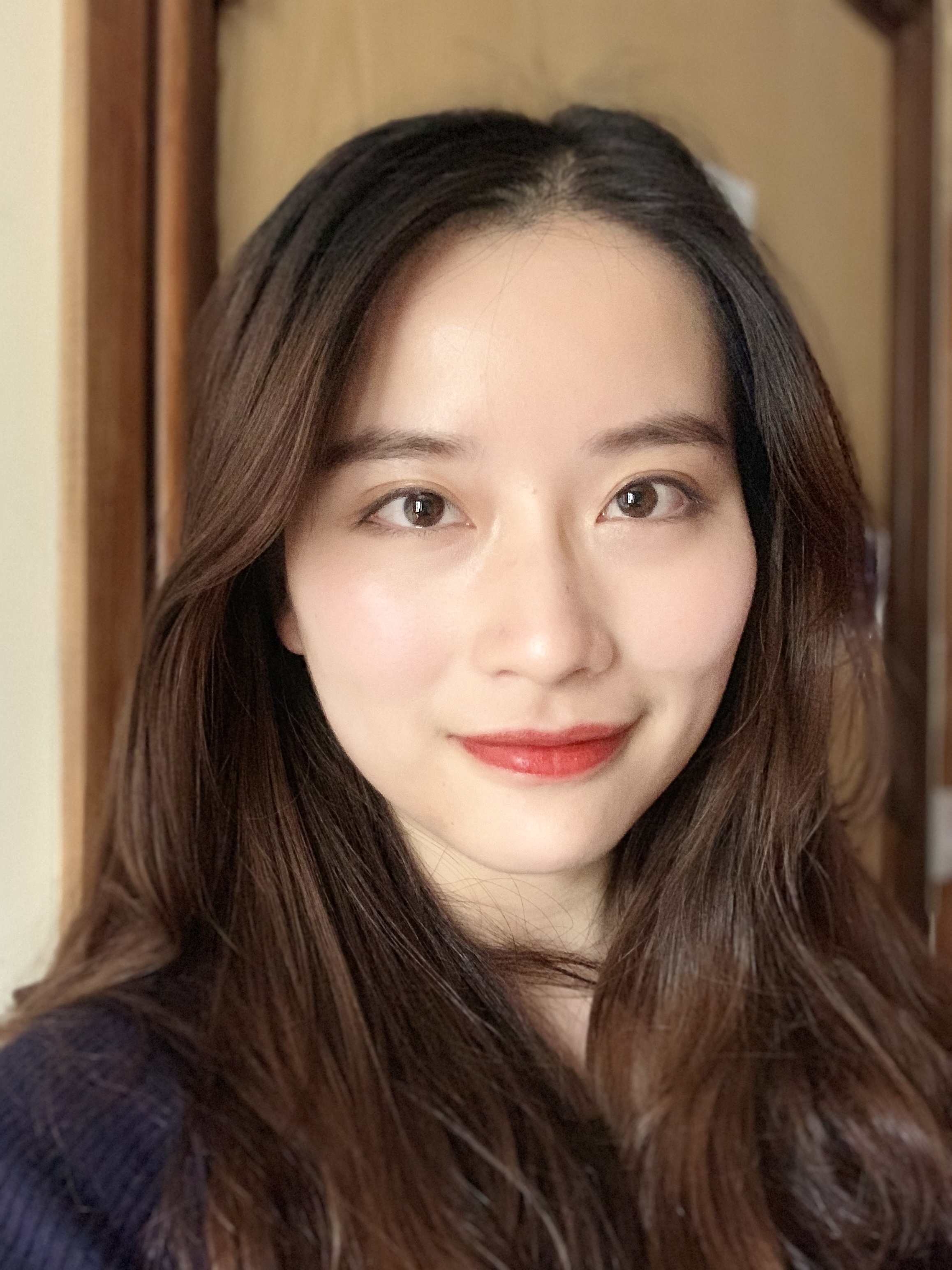
Jiaxin Chen is a PhD student in the Renewable Energy department working under the supervision of Dr Ian Ashton and Professor Lars Johnanning. Her PhD thesis refers to developing met-ocean modelling alongside algorithms for predicting the navigation and operation of autonomous offshore marine systems. Her research will explore methods to integrate measured data into wider spatial data from met-ocean models and satellite earth observation for the management of autonomous systems offshore, and the met-ocean model will also be studied in exploring the autonomous systems to be more intelligent.
“Jiaxin has continually applied models, re-assessed and improved her approach. Even when results appear good, she never hesitates in trying to achieve better. With this enthusiasm and application, she is finding effective methods to improve how we think of marine data and how it can be provided. This has real potential to improve safety and reduce costs for offshore wind farms as well as opening new possibilities for autonomous marine systems.”
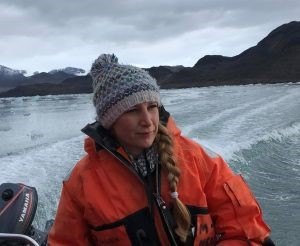 Dr Sarah Nelms
Dr Sarah Nelms
Sarah is a Postdoctoral Research Associate within the University of Exeter’s Centre for Ecology and Conservation. Her research focuses on the issue of plastic pollution within marine and coastal environments, and its impacts on marine vertebrates such as turtles, seabirds and marine mammals.
“Recently, Sarah led a large team of researchers from around the world in reviewing the scientific literature on the conservation of marine mammals, producing an article that will guide marine mammal conservation for years to come. I am continually inspired by Sarah’s dedication to communicate her science to the public, and her commitment to always giving her best. Her high standards and dependable leadership sets a great example for researchers of all career stages; both women and men alike.”
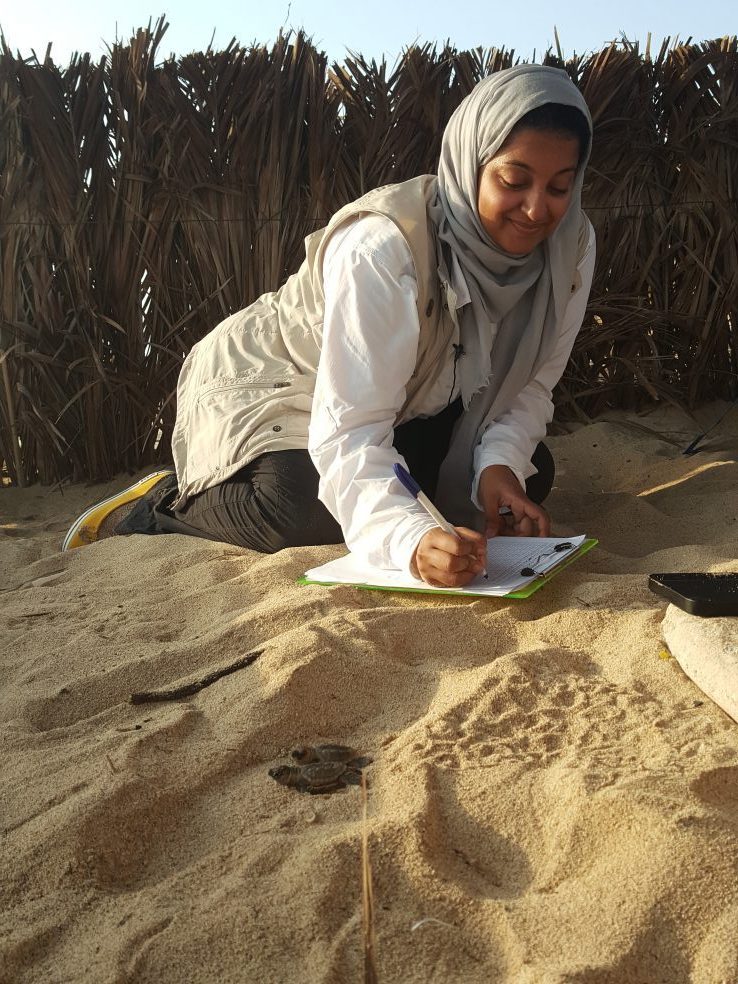 Hind Al Ameri
Hind Al Ameri
Hind Al Ameri is a PhD Researcher, mainly looking at the impacts of climate change on hawksbill turtles in Abu Dhabi.
“Hind is a shining light for marine conservation in the Arabian Gulf. A committed government scientist for her home government of Abu Dhabi, she is formalising much of her work over the last few years into a PhD study. In doing so, she is working very hard to share scientific information across her region as well as raising environmental awareness with a dedicated approach to outreach activities.”
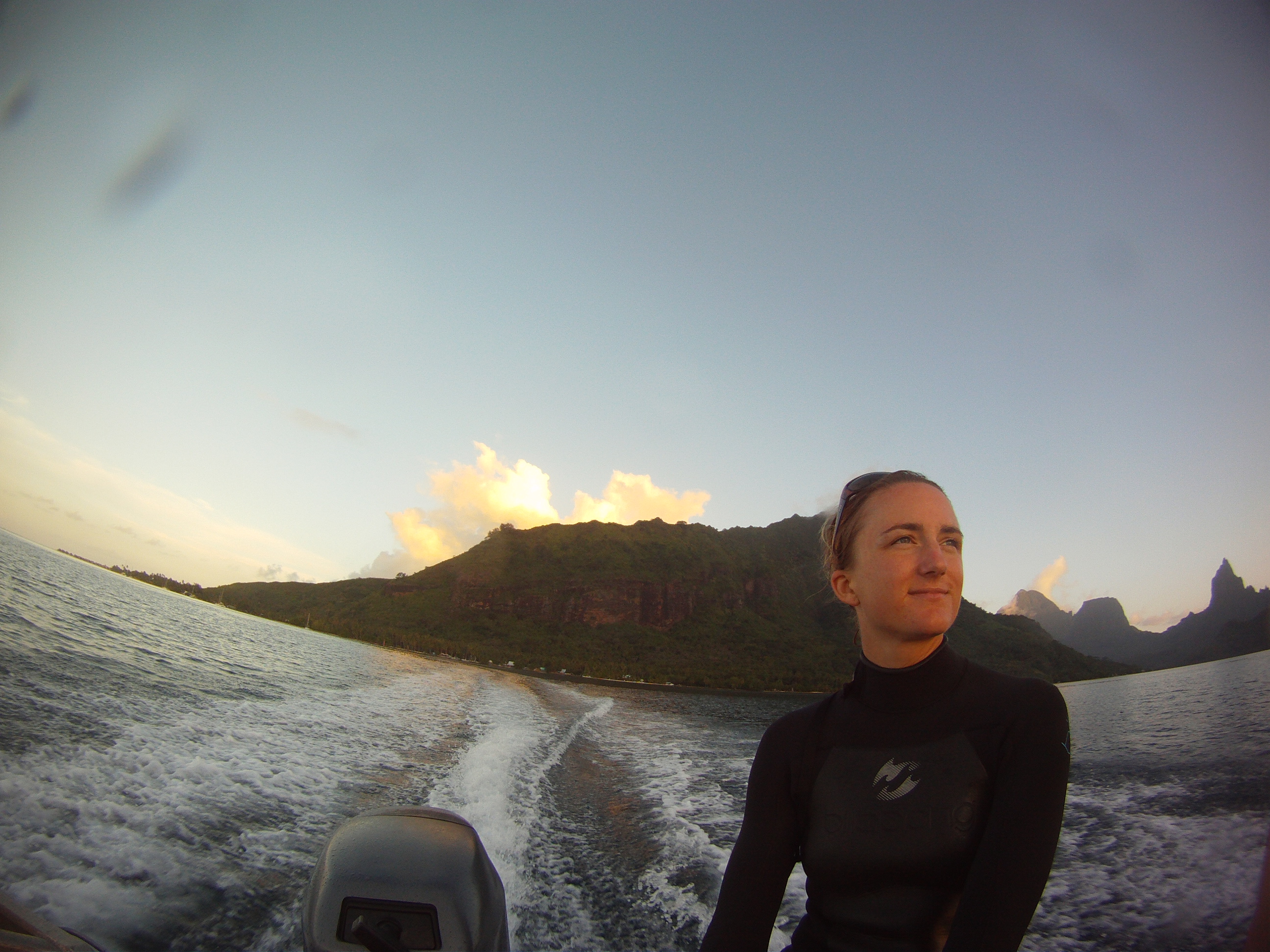 Dr Sophie Nedelec
Dr Sophie Nedelec
Dr Sophie Nedelec is a Postdoctoral Research Fellow with an interest in sensory ecology and human impacts on the environment. Much of her work has focused on the impacts of anthropogenic noise on the reproduction and survival of fish.
“Sophie is a highly creative ExeterMarine scientist, leading ground-breaking research into impacts of noise in the oceans, offering outstanding support to undergraduate and postgraduate students, managing an international industry-funded initiative to revolutionise how we measure underwater acoustics, and delivering a wonderful module on how we communicate science to the public, all the while home-schooling her two amazing kids and lighting up Zoom meetings with her infectious sense of fun.”
 Dr Joanna Alfaro
Dr Joanna Alfaro
Dr Joanna Alfaro is a Peruvian conservation biologist, Director of the Peruvian NGO Pro Delphinus, and an Associate Researcher with the University of Exeter. She and her team conduct important research focused on small-scale fisheries.
“Joanna is unflappable, resourceful, tenacious and always open to new challenges and new collaborations. She has become a recognised leader in marine conservation in Peru and has fostered the careers of many young marine biologists. Joanna is equally at home working alongside fisherman, conducting field research, or promoting conservation on the world stage.”
 Dr Louisa Evans
Dr Louisa Evans
Louisa is an interdisciplinary social scientist with interests in environmental governance and international development, primarily but not exclusively in coastal and marine systems.
“Louisa is an excellent scientist who’s always at the forefront of the really important questions in marine social science, she is great at bringing together interdisciplinary teams, and in her research she finds creative ways to elevate the voices of people in coastal communities.”
 Dr Emily Duncan
Dr Emily Duncan
Dr Emily Duncan is a Postdoctoral Researcher within the University of Exeter’s Centre for Ecology and Conservation. Emily studies the impacts of plastic pollution on marine life including sea turtles. Her work has taken her all over the globe, from Cyprus to the Ganges River to Australia.
“Emily is contributing to excellent, crucial research on the effects of plastic pollution on marine vertebrates around the world, as recognised by the Queen’s Anniversary Prize awarded the University in 2019. Extremely hard-working but also very supportive and kind-hearted, Emily has been a role model for me and many others through her progression from undergraduate to post-doc.”
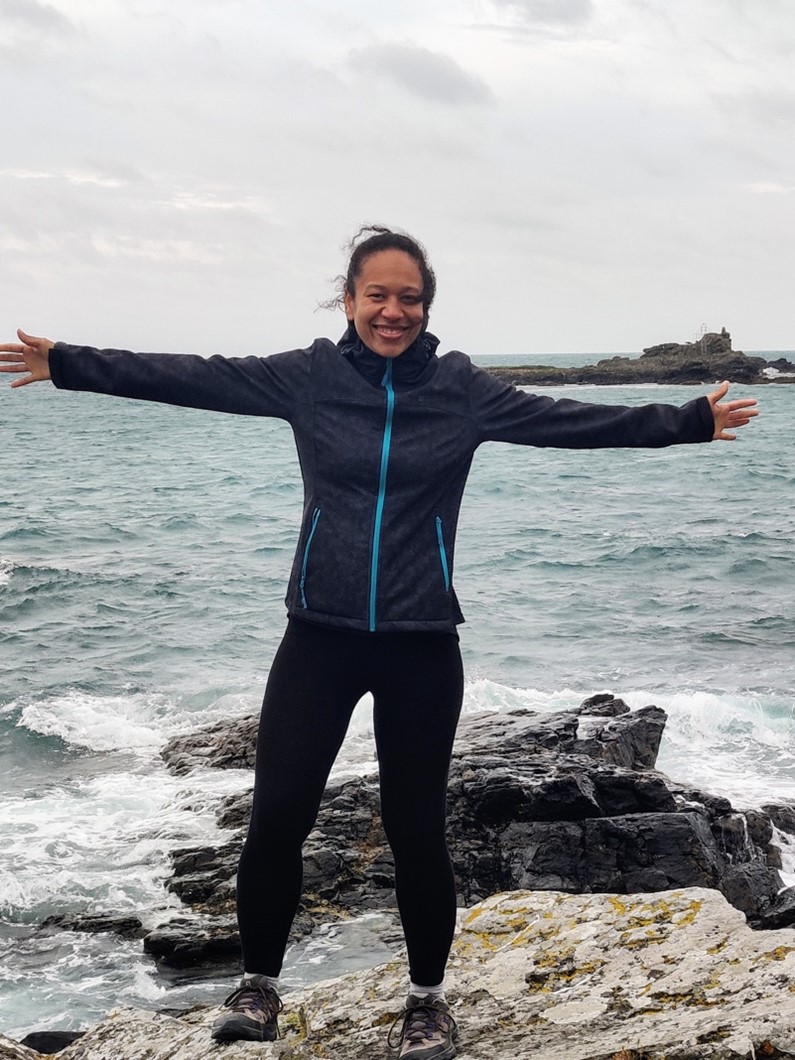 Catherine Lee Hing
Catherine Lee Hing
Catherine Lee Hing is a talented MSc student, exploring the potential effects of climate change and plastic pollution on marine megafauna.
“In 2020, Catherine was awarded the Sir Geoffrey Holland Prize for holding a Women in Conservation Symposium, celebrating equality and diversity in conservation. Catherine inspires others to overcome societal obstacles and demonstrates great passion and enthusiasm to translate science-based results into marine conservation and policy.”
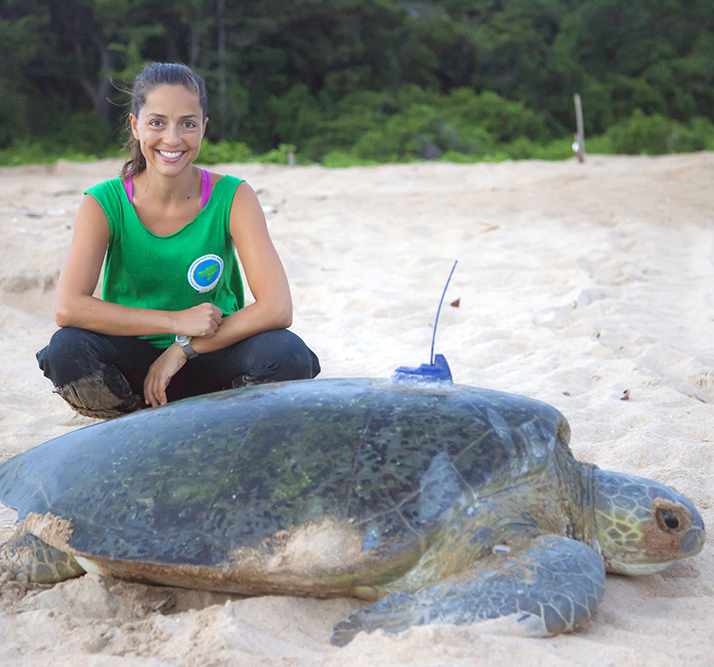 Dr Rita Patricio
Dr Rita Patricio
Rita is a marine ecologist and her research focuses on several aspects of marine turtle ecology, including understanding migratory paths and connectivity, prevalence and impacts of Fibropapillomatosis disease, population dynamics and trends, and also on investigating climate change impacts on nesting populations. Her recent work in West Africa has also a strong focus on conservation and community engagement and capacity building.
“Rita is a force of nature and is truly a joy to work with. Fiercely intelligent and rigorous in her approach to work but kind and joyous with all that work with her in the field, laboratory or the office. Sea turtles and marine conservation have a truly wonderful champion in Dr Rita Patricio.”
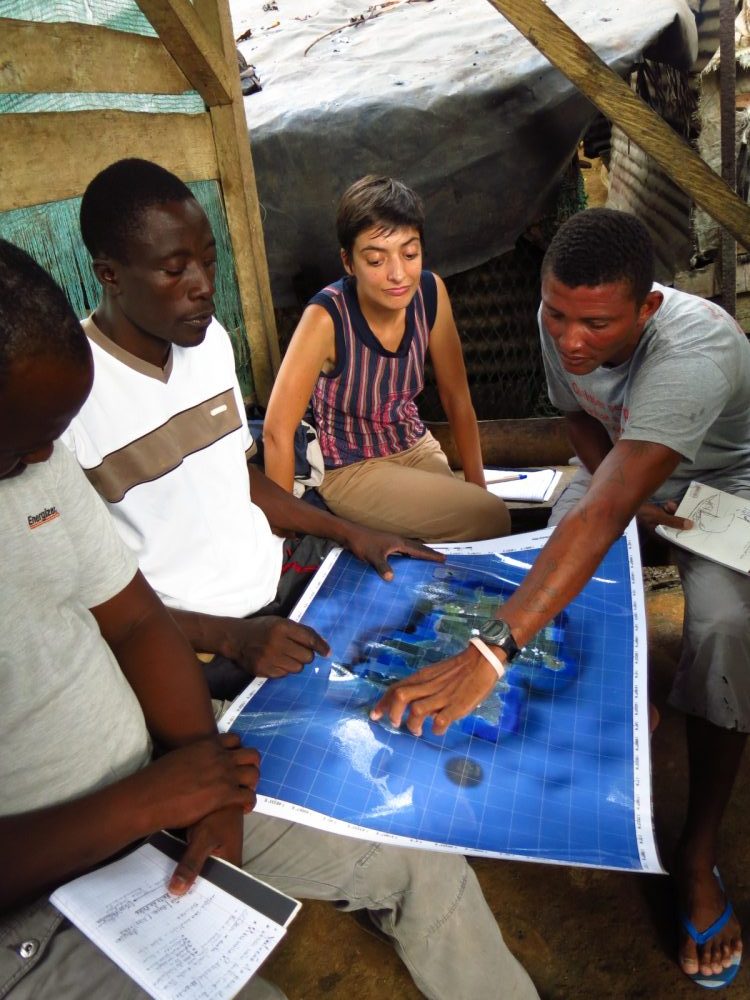 Dr Ana Nuno
Dr Ana Nuno
Dr Ana Nuno is an Honorary Senior Lecturer at the University of Exeter. Ana conducts interdisciplinary research at the interface of social and natural science for addressing sustainability challenges, with a focus on better understanding social dimensions of resource use to inform conservation initiatives. She specializes in delivering collaborative research (e.g. with resource users, local and international NGOs, governmental agencies) with on-the-ground impact.
Ana is particularly interested in the application of tools from multiple disciplines to conservation and in developing novel techniques to achieve a better understanding of the dynamics of social-ecological systems. Her work focuses on bringing together ecological and social data into unified frameworks, as an essential way of fully understanding and addressing conservation issues.
“Ana is truly inspirational in her commitment to true interdisciplinary methods to afford insights into effective conservation. In addition, her commitment to capacity building and mentorship is remarkable. This she effects with quiet, understated charisma that inspires confidence and trust in community members, natural resource managers and academics around her.”
 Dr Krista Sherman
Dr Krista Sherman
Dr Krista Sherman is a marine scientist with more than 10 years of research and conservation experience. She completed a PhD in Biological Sciences at the University of Exeter and is the first Bahamian female with a PhD in the marine sciences.
“Krista has made it her mission to defend and conserve the overfished Nassau grouper across The Bahamas. Krista came to Exeter for her PhD to train in a range of techniques to better understand the ecology of the Nassau grouper. She has since taken her substantial scientific expertise back to the Bahamas, and now drives a range of public engagement, fisheries and conservation initiatives.”
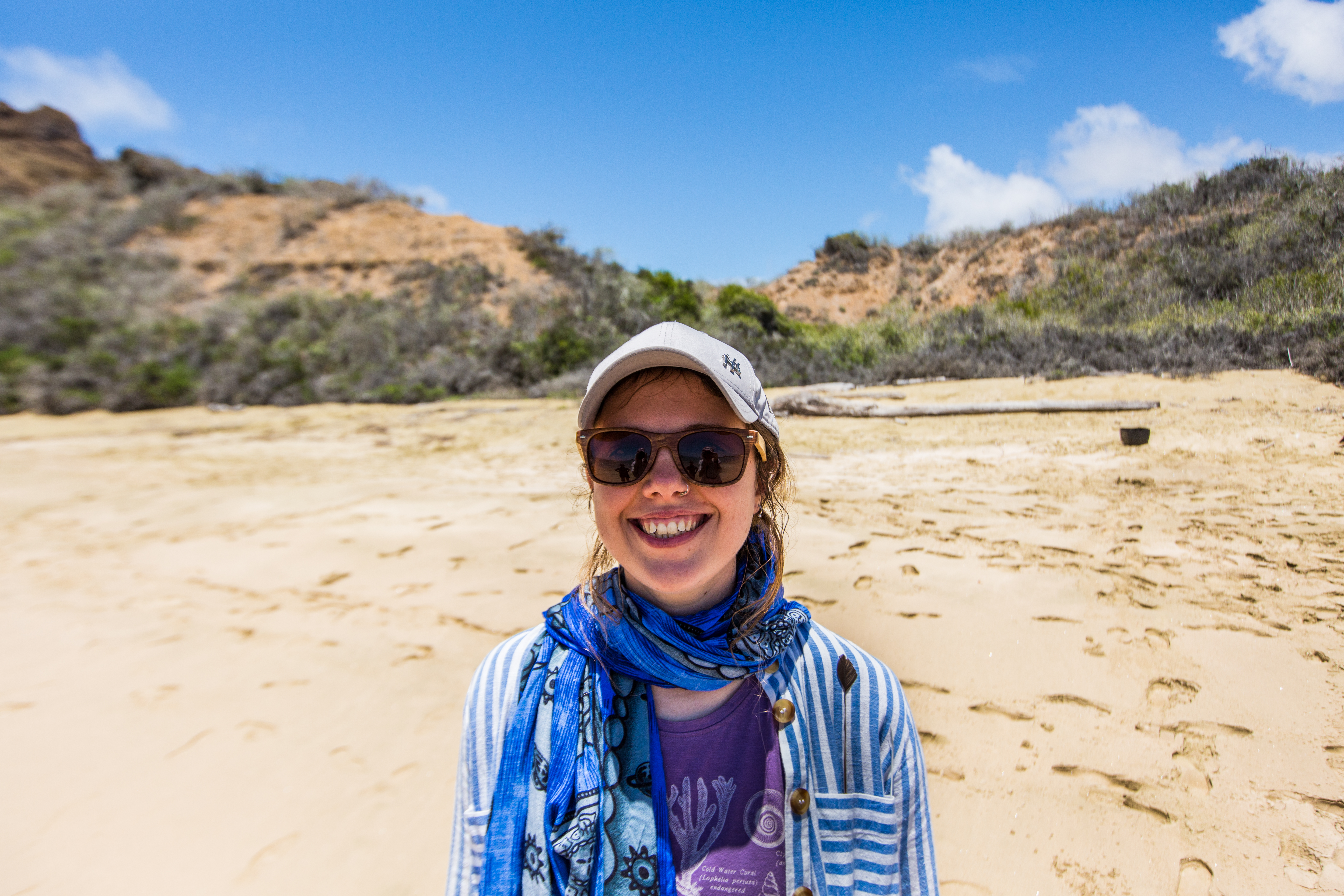 Jen Jones
Jen Jones
Jen Jones is a marine biologist, conservationist and marine iguana fanatic researching the impact of plastic pollution on the Galapagos Islands. University of Exeter PhD student and Galapagos Conservation Trust Project Manager; she is a wonder multitasker!
“The most impressive thing about Jen is her strength. She never gives up and always knows what her goals are for any given project. From helping to write multi-million dollar grant applications to sieving sand for hours in 35 degree heat, she works tirelessly to fight for better for the Galapagos Islands, their conservation and for the people there too. She’s a great scientist, passionate conservationist, and a wonderful person.”
“Jen is an all-round awesome person. Always there to have a laugh with when the going gets tough and simply the best fieldwork buddy there is out there. She’s an incredible researcher and has been a mentor to so many of us in the Galloway/Lewis lab group. We’re incredibly lucky to have her.”
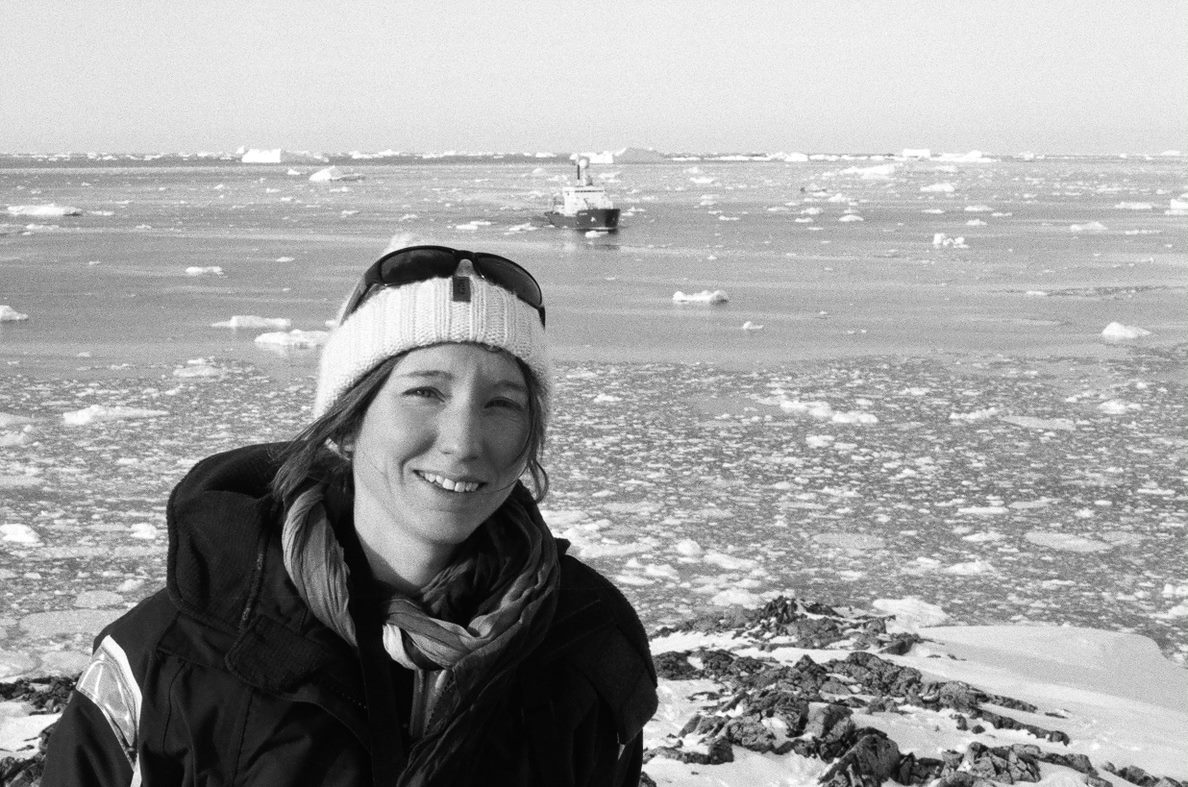 Dr Katy Sheen
Dr Katy Sheen
Dr Katy Sheen is a Senior Lecturer in Physical Geography. Using both observations and models, she is interested in how the physical processes within our Earths climate system work, and how they may respond to a changing climate.
“A lot of Katy’s work has focussed on the Southern Ocean and more recently on the Sahel region of Africa, but whether she’s in the field collecting data, or teaching students here in Cornwall, she never fails to inspire others with her dedication, positive energy and inquisitive mind.”
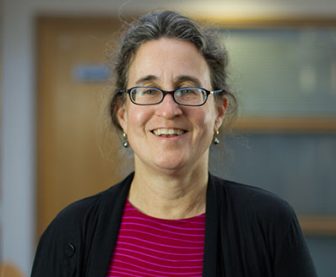 Professor Lora Fleming
Professor Lora Fleming
Professor Lora Fleming is a Physician and Epidemiologist. She is the Director of the ECEHH, Chair of Oceans, Epidemiology and Human Health for the University of Exeter and also the principle investigator for the Seas, Oceans and Public Health in Europe project (SOPHIE).
BlueHealth initiatives and SOPHIE are funded by Horizon 2020, involving communities of interdisciplinary experts. After many years working in a public health department as a physician and epidemiologist, becoming increasingly interested in health interactions with the environment, Lora was key in bringing oceans and human health together as a field in America with the aim of focusing on potential benefits, rather than just risks that the natural environment can offer to human health. This then brought her to the UK with European funding presenting the opportunity to start the ECEHH within the medical school in Truro.
“Lora leads a thriving centre which has an amazing supportive culture. She pushes for interdisciplinary working, linking the environment and human health, and has been instrumental in pushing forward the Oceans and Human Health agenda in Europe.”
Dr Lucy Hawkes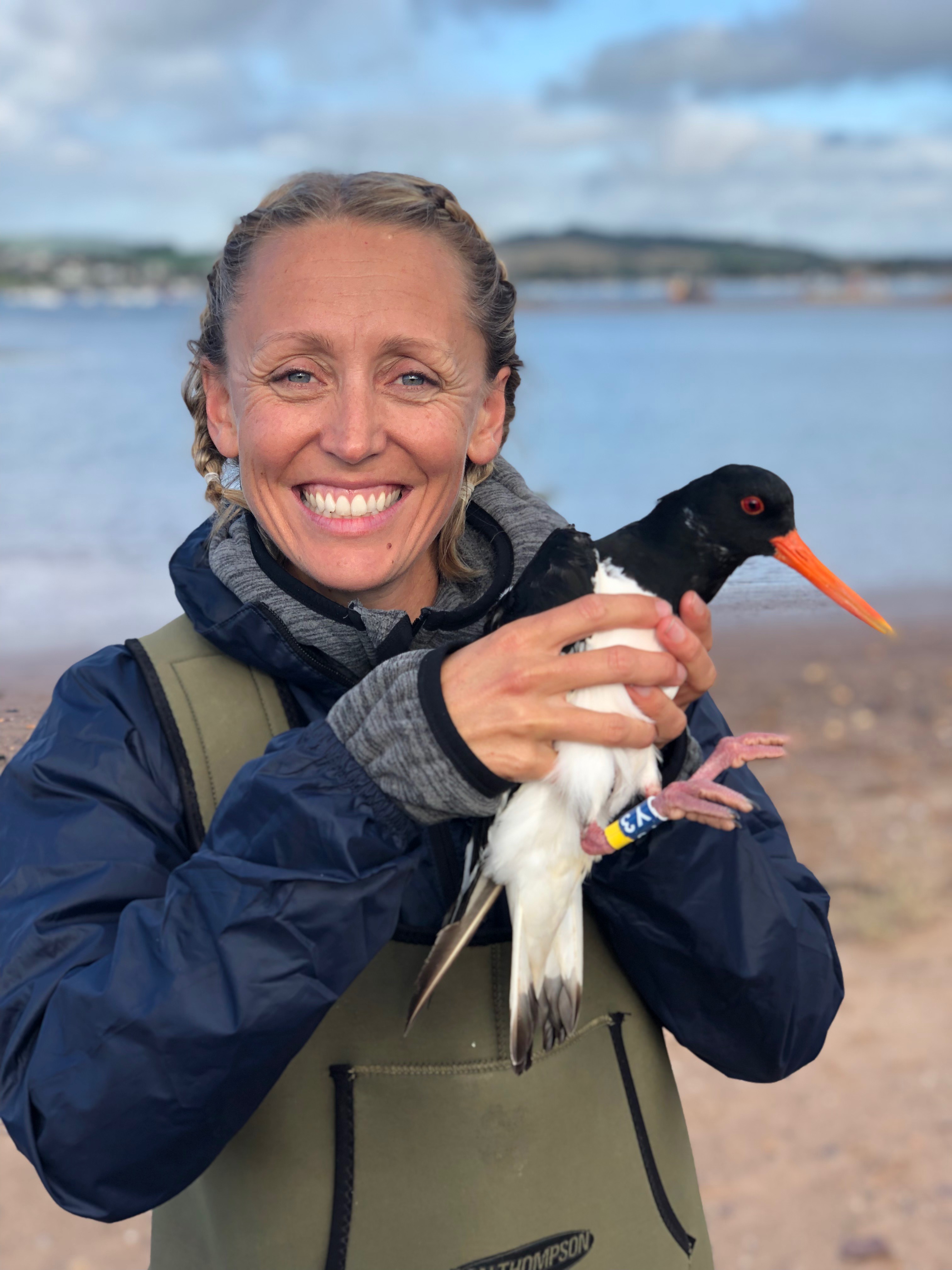
Lucy is a physiological ecologist, whose work focuses on the costs and drivers of migration in animals (vertebrates and invertebrates) using emergent technologies such as satellite telemetry, heart rate logging, accelerometry and metabolic rate measurements. Lucy uses technical approaches including biologging, spatial ecology, remote sensing and respirometry to make empirical measurements that help in the understanding of amazing migratory performances. Her work has also investigated the impact of external forcing factors, such as climate change and disease ecology on migration and breeding ecology.
“Lucy is a beacon of how to mentor people in science to do the very best they can. Through the highs and lows that science, academia and fieldwork can bring to all of us, Lucy sees through the challenges and recognises what is important – the quality of science and the emotional and physical welfare of her team. No challenge is too much to undertake, she is fearless in her fieldwork, a dedicated mentor and an amazing scientist.”
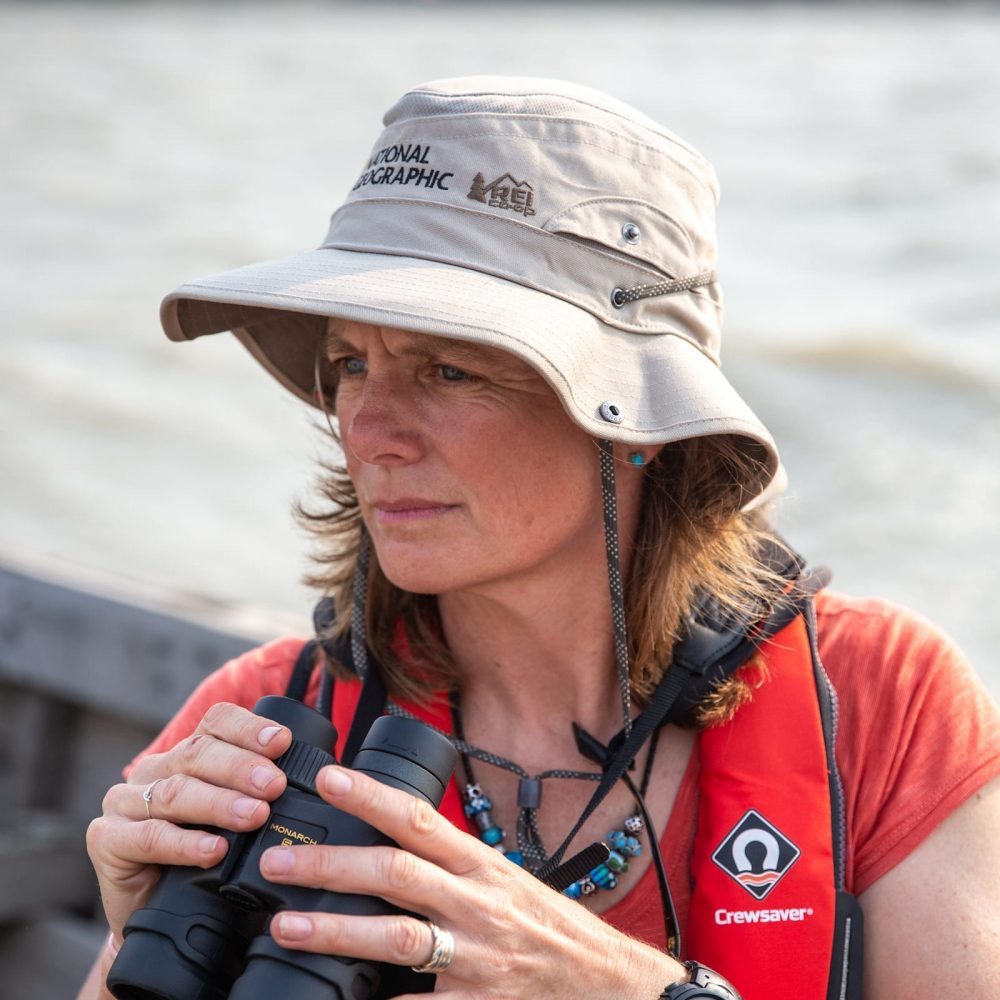 Professor Heather Koldewey
Professor Heather Koldewey
Professor Heather Koldewey is a marine biologist and conservationist who has done inspirational work to help protect vulnerable marine species and reduce plastic pollution in ocean habitats.
“Heather has been at the forefront of numerous pioneering projects such as Net-works, Project Seahorse and One Less as well as a leader of the National Geographic “Sea to Source: Ganges” expedition and Bertarelli Foundation’s BIOT MPA programme. Heather is a wonderful role model for female marine conservationists due to her passion and skill of inclusivity of local communities to solutions. And on top of this she is brilliant fun to work with!”
 Dr Beth O’Leary
Dr Beth O’Leary
Beth O’Leary is a Post-doctoral research fellow in the Centre for Ecology and Conservation. She is a talented young scientist who has dedicated her career to undertaking high-quality strategic research to underpin ocean conservation.
“Beth is undertaking a series of ground-breaking studies which are already leading to real world changes in policy. These include:
1) Making the scientific case for protection of half a million square kilometres of the North Atlantic in 2010 in the world’s first (and still only) network of high seas marine protected areas.
2) Revealing the gross mismanagement of European fisheries by politicians. Over the course of 25 years of the Common Fisheries Policy, she found that fisheries ministers set Total Allowable Catches on average a third higher than scientific advice, guaranteeing overfishing and proving their culpability in stock declines.
3) Conducting research which underpinned a motion passed at the World Conservation Congress in Hawaii in 2016, which argues for a new target of 30% of the sea to be protected by 2030 which is now gaining massive political traction.
4) Undertaking pioneering science on the application of marine protected areas to international waters and supporting an ongoing process at the United Nations to amend the Law of the Sea to allow the creation of high seas protected areas. She has given invited presentations to UN delegates about scientific understanding of the high seas on two occasions.”
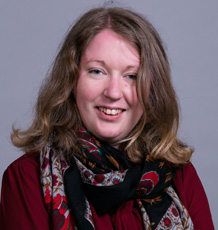 Dr Jo Browse
Dr Jo Browse
Jo is a lecturer in Physical Geography with a background in physics and computational science. She is a climate and atmospheric modeler interested in Arctic atmospheric composition and develops complex models to forecast the evolving Arctic environment.
Jo’s overarching research goal is to understand how different components of the Arctic climate system (ice, ocean, atmosphere, vegetation etc.) will change and interact to accelerate or mitigate Arctic warming through positive and negative ‘climate feedbacks’. She studies the coupled climate system in the Arctic using complex models and an expanding network of Arctic real-world observations to quantify and constrain model uncertainty.
“Jo has been successful in securing NERC and UKRI grants, and recently contributed to a number of high-profile papers, for example, in the journal Science Advances.”
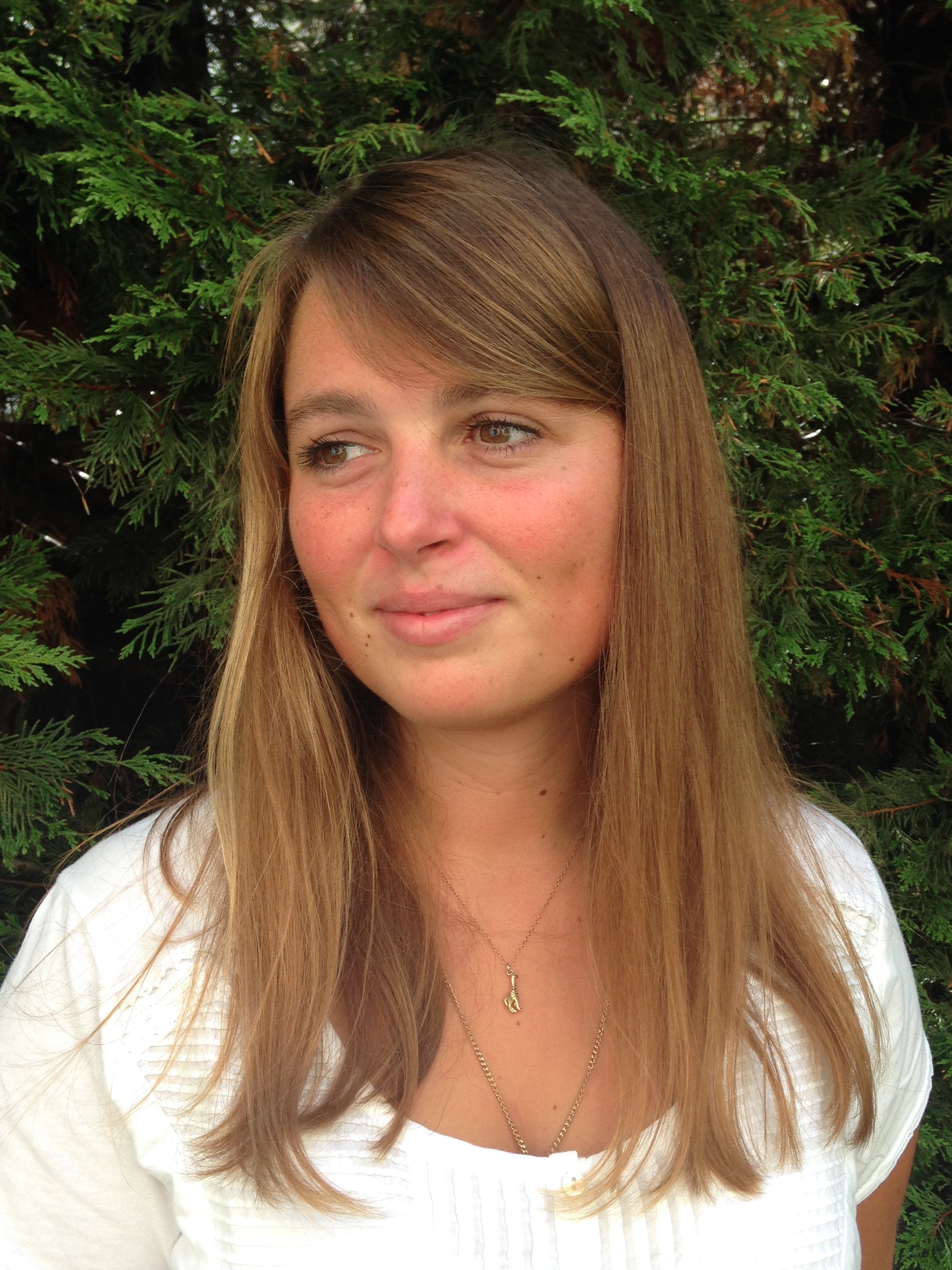 Dr Lucy Omeyer
Dr Lucy Omeyer
Lucy is a Post-doctoral research associate within the University of Exeter’s Centre for Ecology and Conservation, working as lead research scientist on two projects focusing on bycatch mitigation strategies.
“Lucy is one of those individuals who quietly works away at something, figuring out how to tackle a problem, learning new methods and always produces excellent work. She is a fantastic scientist, super efficient and very hard-working.”
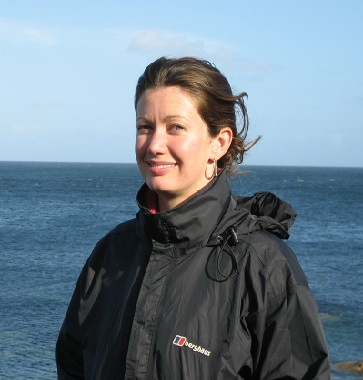 Dr Tessa Gordelier
Dr Tessa Gordelier
Tessa’s research interests lie in the development of the marine renewable energy sector. Her research has a particular focus on component reliability assessment and the development of novel solutions for the sector. Much of her work has revolved around mooring systems for highly dynamic floating MRE devices, with her PhD Thesis entitled “Enhancing Wave Energy Developments through Mooring System Reliability Assessment”. This work involved a significant amount of physical testing utilising both the Dynamic Marine Component Test Facility (DMaC) and the South West Mooring Test Facility (SWMTF), in addition to collaboration with IFREMER through the Marinet Programme.
Tessa now works linking businesses in Cornwall with research and innovation in the marine sector. Her recent work has enabled Cornish company, Morek Engineering, to create innovative software to streamline the development of seafastening designs for the offshore renewables market.
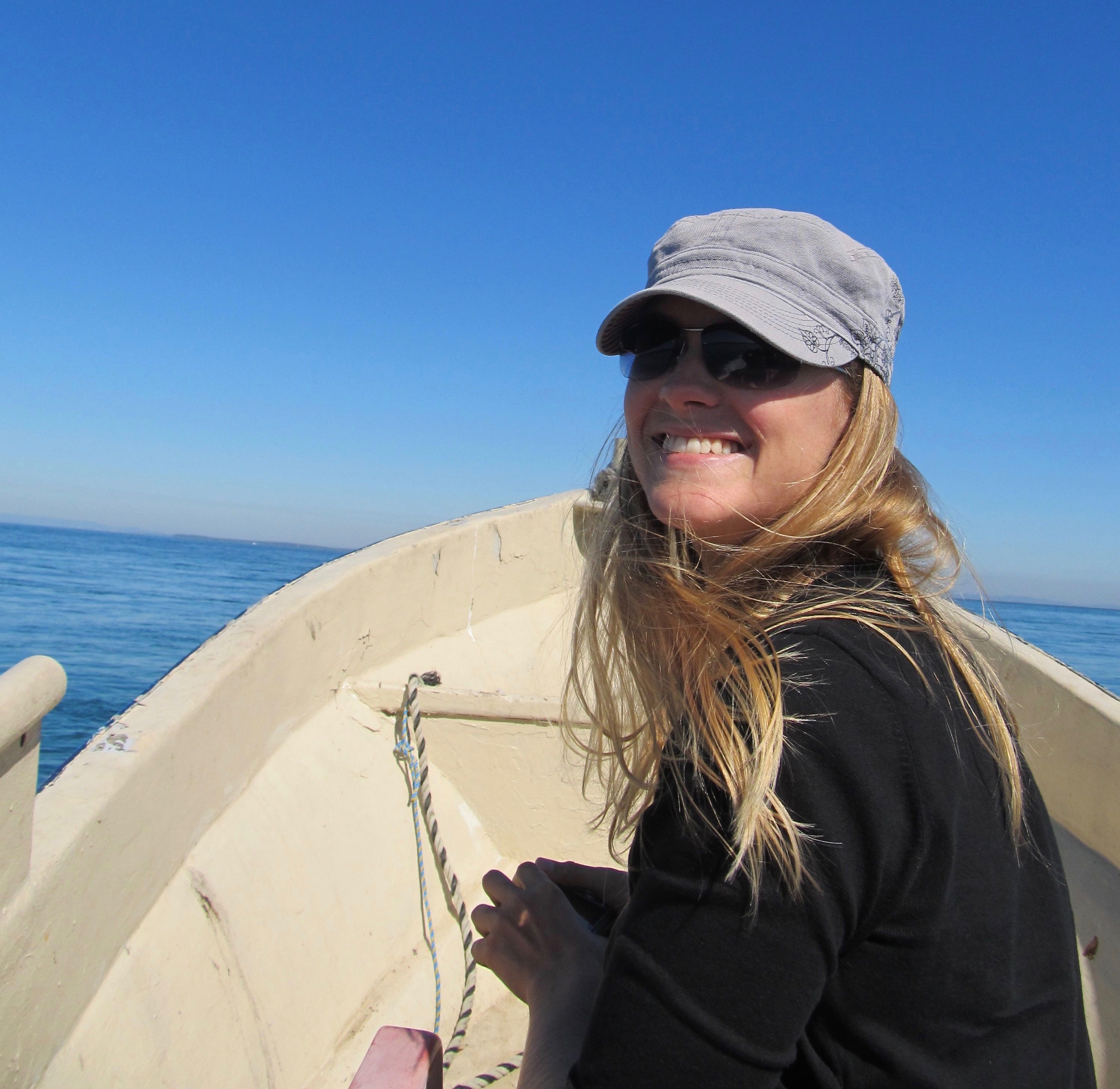 Dr Ruth Thurstan
Dr Ruth Thurstan
Ruth’s work in the UK and Australia has made use of a variety of sources and techniques to better understand the scale and drivers of ecological change, and the consequences of such change for the users of these ecosystems, with a particular focus on finfish and shellfish fisheries. These include government statistical records, popular media, oral history interviews, maritime charts, and underwater coring and in-situ survey methods.
“Ruth Thurstan is an inspiring leader in a new field: marine historical ecology. Her work is best compared to that of a detective, piecing together how the oceans once looked based on multiple sources of fragmentary evidence. Like the best fictional detectives, to succeed you need keen instincts for where to find the evidence, a polymath’s understanding of many disciplines, and an artist’s sensitivity as to how to fit it all together. Ruth’s hunting grounds take in endless columns of fisheries statistics, dusty and rarely visited library shelves, newspaper archives, oral histories and dog eared photographs among many others.”
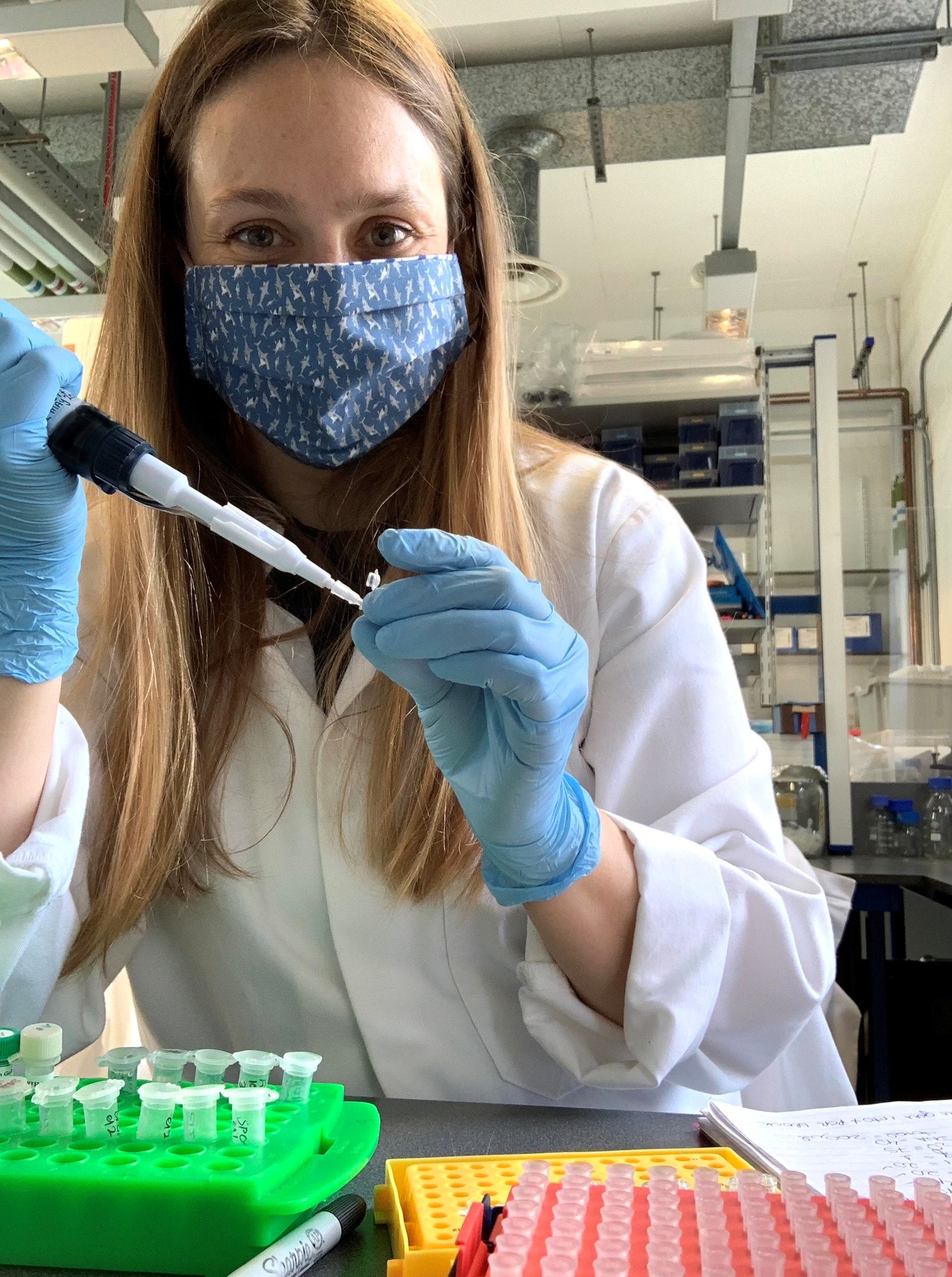 Veronica Zuccolo
Veronica Zuccolo
Veronica Zuccolo graduated from the University of Exeter MSc Conservation and Biodiversity programme in 2020 and was awarded an ExeterMarine grant to pursue her passion researching sharks in Latin America.
“Veronica’s passion and interest in shark biology is truly inspiring, and her determination to complete her project, investigating sales of endangered sharks in Brazil – throughout a global pandemic, is amazing!”
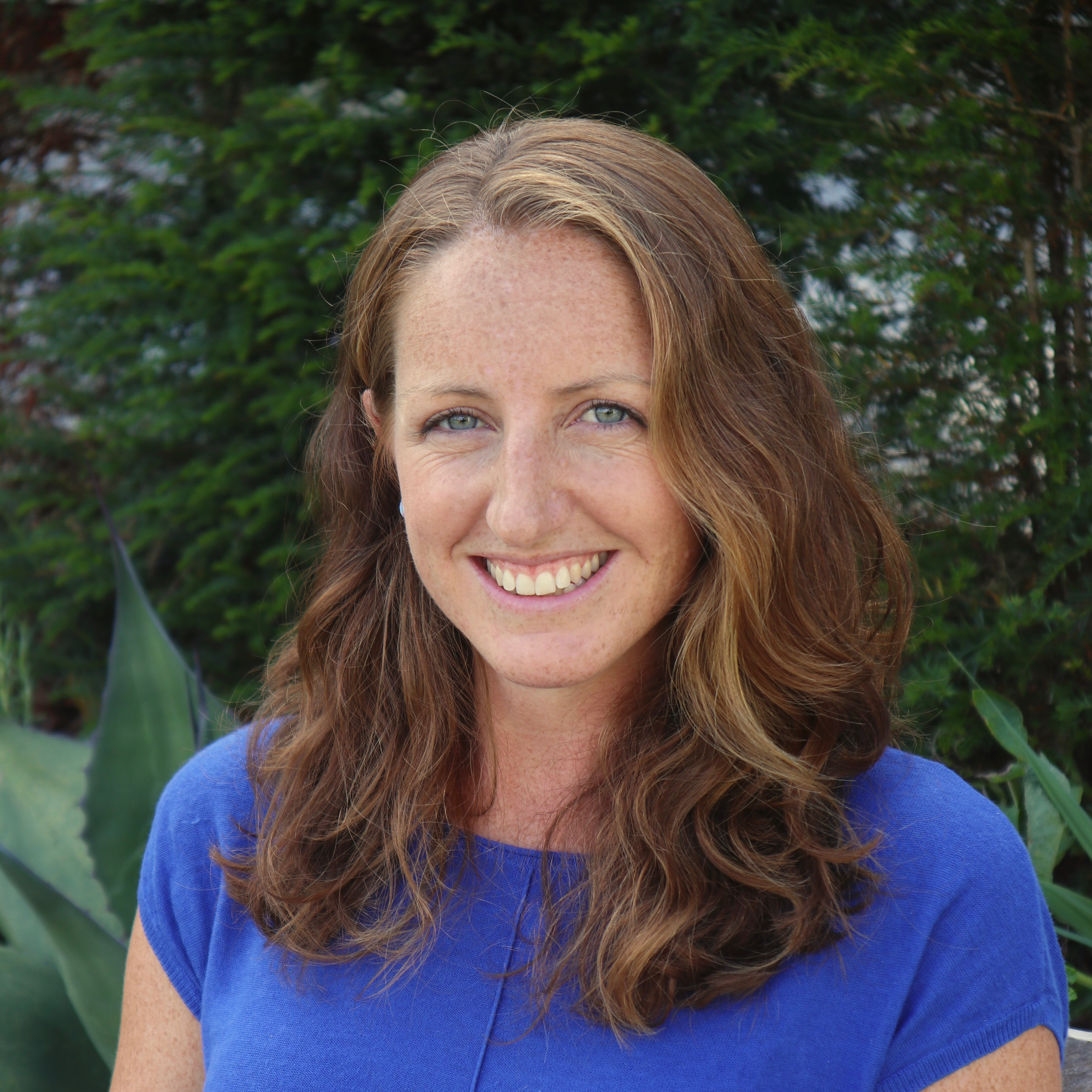 Dr Rachel Turner
Dr Rachel Turner
Rachel is an environmental social scientist focusing on marine resource governance and coastal communities. Her research focuses on understanding how socio-economic and environmental contexts drive resource use behaviour and have implications for management and governance systems. She is interested in the dynamics of social-ecological systems and how resource users respond to change, and she is committed to interdisciplinary research addressing challenges of sustainable natural resource management. Recent research has explored marine resource dependence and identification of supportive governance structures for effective Caribbean coral reef management. Her current work in the UK focuses on wellbeing of fishers and fishing communities with a focus on health.
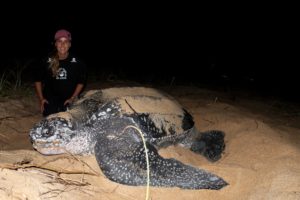 Dr Liliana Colman
Dr Liliana Colman
Liliana is a marine ecologist and her research focuses on several aspects of marine turtle ecology, including both in-water research and work conducted on nesting beaches. Her current research involves studying the ecology of leatherback sea turtles in Brazil, through the use of diverse techniques such as PIT tagging, stable isotopes, temperature and sex ratios and population dynamics.
“Liliana’s research has contributed greatly to our knowledge of the ecology of marine turtles in Brazil. Lili is an inspiration for her perseverance and hard work, her natural ability to connect with people and her passion for marine conservation. She is a great role model for students and younger researchers pursuing their dream to become an academic conservation scientist.”
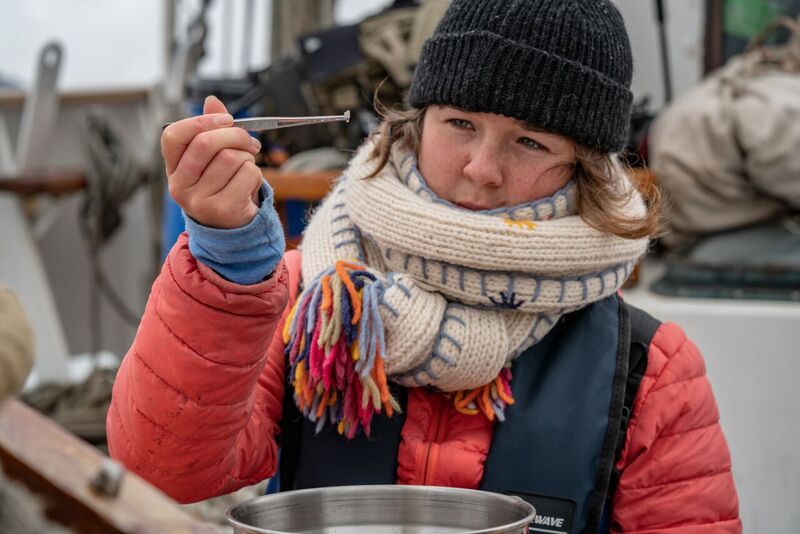 Lowenna Jones
Lowenna Jones
Lowenna is a University of Exeter MbyRes graduate, specialising in marine plastic pollution. In addition to conducting her masters by research investigating the source, fate and distribution of microplastics in the Arctic, Atlantic and Pacific Ocean basins, she co-organised the Sail Against Plastic expedition – a pioneering scientific research voyage with the aim of raising awareness and collecting data on plastic contamination in the Arctic.
“Lowenna is incredibly passionate about the conservation of our oceans. Determined, driven and very hard-working, she never fails to rise to new challenges. She is a brilliant role model for young marine conservationists, and I look forward to seeing what else she achieves in her career.”
 Dr Eva Jimenez-Guri
Dr Eva Jimenez-Guri
Eva is an Evolutionary and Ecological Developmental biologist interested in understanding the effect that plastic contamination can have on embryo development in the marine environment. She looks at the developmental abnormalities derived from this contamination from a morphological and molecular perspective, to understand how this is affecting the survival and fitness of marine organisms.
“Eva is a fiercely passionate researcher, focusing on work at the cross-road of developmental biology and marine plastic pollution. She has inspired, supported and encouraged me through my development from an under-graduate to a post-graduate researcher and I am continually amazed by her compassion, motivation and knowledge as a scientist whilst balancing motherhood and all that it means to be female.”
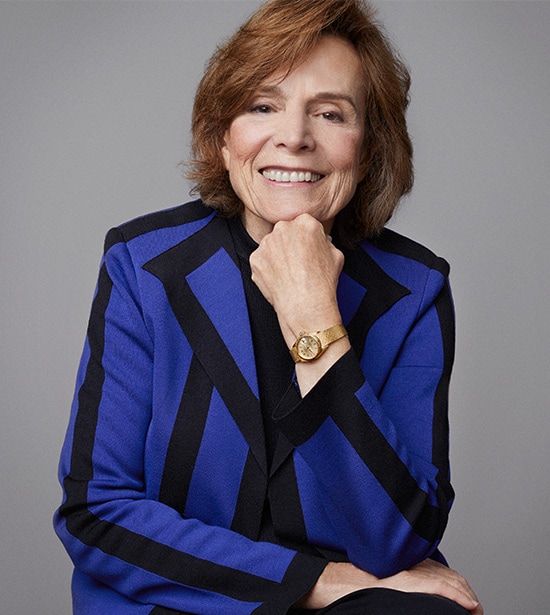 Dr Sylvia Earle
Dr Sylvia Earle
Sylvia Earle is a marine biologist who has led pioneering research on marine ecosystems.
“Sylvia is a living legend, having spent weeks underwater, including in submarines and underwater living pods. She is currently the National Geographic Researcher in Residence, and has campaigned fearlessly for ocean conservation over many decades. She speaks with authority, passion, wonder and joy, and continues to inspire new generations of marine biologists and conservationists through her magical films and books. Sylvia is a keen advocate of the work in ExeterMarine on coral reef restoration, including the use of acoustic enrichment to accelerate recovery of fish populations.”
#ExeterMarine is an interdisciplinary group of marine related researchers with capabilities across the scientific, medical, engineering, humanities and social science fields. If you are interested in working with our researchers or students, please visit our website!
